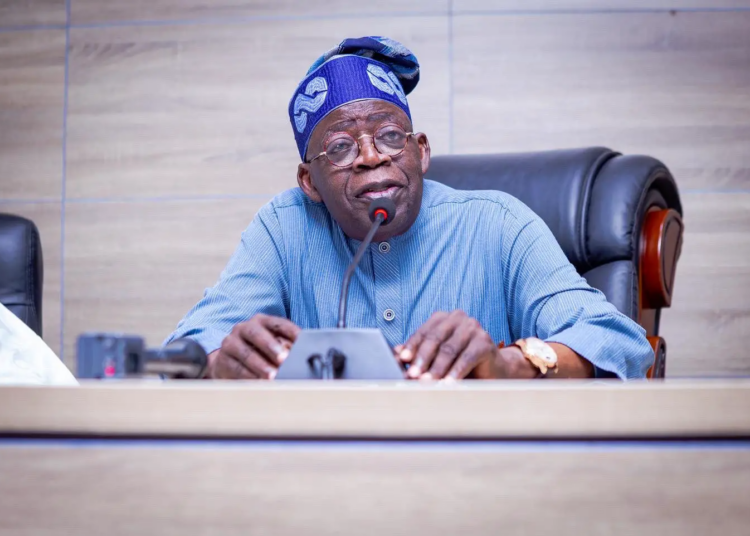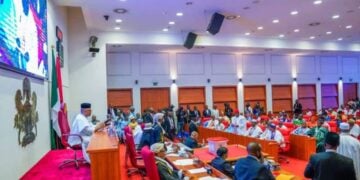About 30 civil society organisations (CSOs) have called on President Bola Ahmed Tinubu to declare his stand on the anti-corruption war.
They said throughout his campaign, Tinubu did not spell out what he would do in the fight against corruption adding that corruption having eaten deep into the fabrics of the country, the new president must declare what he stands for in the fight against the scourge.
The CSOs are Accountability Lab, Nigeria; African Centre for Media & Information Literacy (AFRICMIL); Borno Coalition for Democracy and Progress (BOCODEP); BudgIT Foundation; Civil Society Legislative Advocacy Centre (CISLAC); Corporate Accountability and Public Participation Africa (CAPPA); HEDA Resource Centre; State of the Union (SOTU); Tax Justice and Governance Platform; Transition Monitoring Group (TMG); Women in Media Communication Initiative (WIM); Zero Corruption Coalition (ZCC); Alliance for Credible Elections (ACE); Centre Democracy and Development (CDD) and Centre for Information Technology and Development (CITAD).
Others are Civil Society Legislative Advocacy Centre (CISLAC); Environmental Rights Action(ERA); National Procurement Watch Platform(NPWP); Resource Centre For Human Rights& Civil Education(CHRICED); Partners on Electoral Reform; Say NO Campaign – Nigeria; Femi Falana Chamber; Health of Mother Earth Foundation (HOMEF); Socio-Economic Rights and Accountability Project (SERAP); Kano Peace Committee; Good Governance Team; 21st Century Foundation; OCCEN; Mothers and Marginalised Advocacy Centre (MAMA Centre) and International Center for Investigative Journalism/ Premium Times.
At a press conference to unveil their anti-corruption report, the leader of the coalition and head of the Civil Society Legislative Advocacy Centre (CISLAC), Transparency International (TI), and the Transition Monitoring Group (TMG), Awwal Musa Rafsanjani said Tinubu should declare a national confidence on the war against corruption.
The CSOs drew the attention of Tinubu that they will not allow corruption to overrun the country adding that every aspect of the country should be freed of corruption.
“We must resist every tendency of corruption,” Rafsanjani said, adding that the Tinubu’s administration seems not to have an anti-corruption fight as an agenda.
He said given the effect of corruption which they are worried about, they are insisting that Tinubu must quickly move towards such a direction to tackle corruption.
“The president must declare a national confidence on the fight against corruption. The president should do that and follow it up with a clear action.
“If that does not happen, there is no way any serious investor will come and invest in the country. So, he should declare war against corruption and send a clear statement that Nigeria is not a corrupt country. Tinubu should revive the fight against corruption because no sacrifice is too much. We must fight corruption at institution level and also prevent it from happening,” Rafsanjani said.
The CSOs called for the passage of the Whistleblower and Witness Protection Bill into law, full implementation of the National Strategy on anti-corruption and the Freedom of Information Act, 2011 across all the states of the Federation including the FCT; compulsory capacity building exercise for staff of public institutions on the provisions of the Public Procurement Act, 2007, the Proceeds of Crime (Recovery and Management) Act, 2022 and Freedom of Information Act (FOIA), 2011; Effective monitoring and implementation of the Beneficial Ownership register in full compliance with the provisions of CAMA for improved transparency and accountability in public procurement processes; Effective implementation of the provisions of the Proceeds of Crime (Recovery and Management) Act, 2022, Fiscal Responsibility Act, the Money Laundering and Prohibition Act, 2022 and OGP NAP III; Improved funding for ICPC and Code of Conduct Bureau as well as review by the National Assembly of the provisions of the Acts establishing the ICPC, EFCC and Code of Conduct Bureau regarding the mode of appointment of the Chairman and other key laws used to prosecute cases to enable these institutions carry out their mandate effectively and independently, without undue influence. This will also result in an increased number of convictions of politically exposed persons (PEP) by the EFCC and ICPC and amending the enabling Acts of the anti- corruption agencies to include tenure for heads of these agencies.
“Investigation of all public officers and politically exposed persons (PEP) named in the Pandora papers, Panama Papers, Paradise Papers, Genko scandal and FinCEN Files while those found guilty be made to face the full wrath of the law as a deterrent to others.
“Reform of financial institutions such as CBN and commercial banks, FIRS, Nigerian Ports Authority and Maritime sector. These have become money laundering gateways.
“Take concrete steps to foster great judicial independence by institutionalizing real financial autonomy for the judiciary, which currently depends on disbursements that are often delayed by the executive.
“Demand that anti-corruption and security agencies demonstrate greater transparency with regards to their budgets and expenditures, developing strategic capacity-building spending plans. To this end, more respected technocrats, jurists and civil society figures should be appointed to serve on the boards of the anti-corruption agencies and reduce the de facto control board members have over staffing and operational decisions and provide a well-designed and operational system of asset declaration that can be an important element in the overall anti-corruption and integrity system through “asset declaration available for public scrutiny.”.
“For genuinely confidential procurements in the Defense Sector, we recommend that a separate legal procedure should be designed allowing for monitoring by a confidential Senate Committee and a Unit with a suitable security clearance within the Bureau for Public Procurement. Also, there should be constructive working relationship among executive, legislative and civil society to publish guidelines that allow for proper scrutiny of how security votes are budgeted, spent and monitored,” he said.





